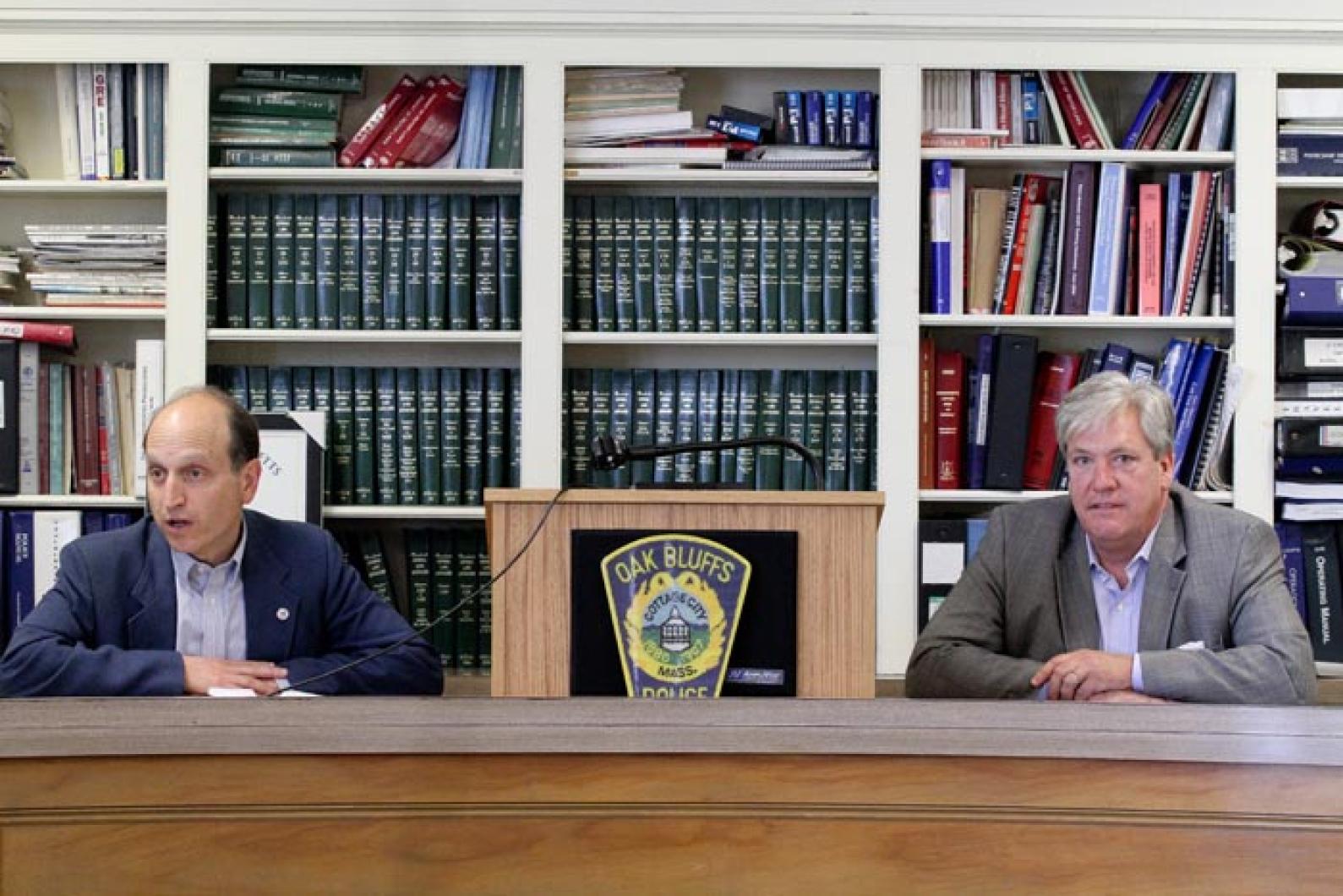With time running out on the formal legislative session for the year, a revised bill to overhaul the outdated Massachusetts Public Records Law was inching its way out of a joint committee and toward a possible vote this week.
The bill, the product of a coalition of public watchdog and civil rights groups and Massachusetts newspaper publishers, has been bogged down in the House Ways and Means Committee since July, in part due to powerful opposition from the Massachusetts Municipal Association which represents cities and towns in the commonwealth.
The bill has been revised in order to meet some of the concerns of the opponents.
House Speaker Robert DeLeo said early in the week that he was optimistic about bringing the bill onto the floor for a vote before the end of the session, but as of Thursday this week it remained stuck in committee.
Cape and Islands Rep. Timothy Madden, who is backing the bill, said all he could do was hope.
“The key is to try to get as much consensus as possible — as of today my understanding is they haven’t gotten a complete consensus yet, they are still working on it,” Mr. Madden said from Beacon Hill.
“In fairness to the Speaker, this is what happens,” he added. “You open the door and put your foot in it and everyone sees your foot and the pressure is turned up. This is high on his agenda I know, the Speaker has said so personally to me.”
The legislature ends its formal session for the year on Nov. 18.
House bill 3665 aims to strengthen the public records law by clearing away obstacles for ordinary citizens as well as members of the media who seek access to government documents and emails. The current law, which dates to 1973, is widely acknowledged to be one of the weakest public records laws in the country. Originally modeled after the federal Freedom of Information Act, the law presumes that most government records are open and public, but through the years a growing list of exemptions have been added. A rule that requires government officials to comply with requests within 10 days has no penalties attached and is routinely ignored, and exorbitant fees are sometimes charged for compiling and redacting documents. In one extreme instance, the Massachusetts state police asked for $2.7 million in response to a request for a database containing records of breathalyzer tests.
The revised bill includes provisions to improve electronic record keeping, in part by requiring towns to designate one person to be in charge of providing access to public records. The bill also has provisions for opening up public access to records stored on websites, including annual reports, final opinions, bids for contracts and public hearing notices. The bill also contains provisions to keep costs reasonable.
The bill was originally authored by Rep. Peter Kocot, a Northampton Democrat, but the concept of public records reform has broad bipartisan support. Gov. Charlie Baker, Attorney General Maura Healey and Secretary of State William Galvin are all on record in support of reform, and the bill itself has solid support on Beacon Hill, including from leadership in the House and Senate. Ms. Healey reaffirmed her commitment to transparency in government in a speech this fall to the New England Newspaper Publishers Association.
Mr. Madden confirmed this week that the primary opponent has been the MMA and its powerful lobby. In a recent statement on its website, the association said while it supports reform, it believes more time is needed to get the bill right. “As currently drafted, the bill is not adequately balanced,” the statement said in part, raising concern that the bill would “transform the public records law into an unfunded mandate.”
Mr. Madden said he has had discussions with town selectmen in his district and heard echoes of the MMA position. But he disagrees with it. “The bottom line is these are our constituents — they are demanding something and we have to listen to that,” he said. “If it costs us more, well they have to pay the bills. But it’s very clear that we should be doing this.”
He also said the role regional newspapers have played in putting the spotlight on public records reform — especially local papers — has had a clear impact.
“I think the newspapers have done a terrific job and been very pointed,” Mr. Madden said. “Believe it or not, we actually do read editorials. We listen to the home town papers. I think you guys have the pulse on what’s going on.”
On the Vineyard, the bill has also been endorsed by the League of Women Voters.




Comments (4)
Comments
Comment policy »